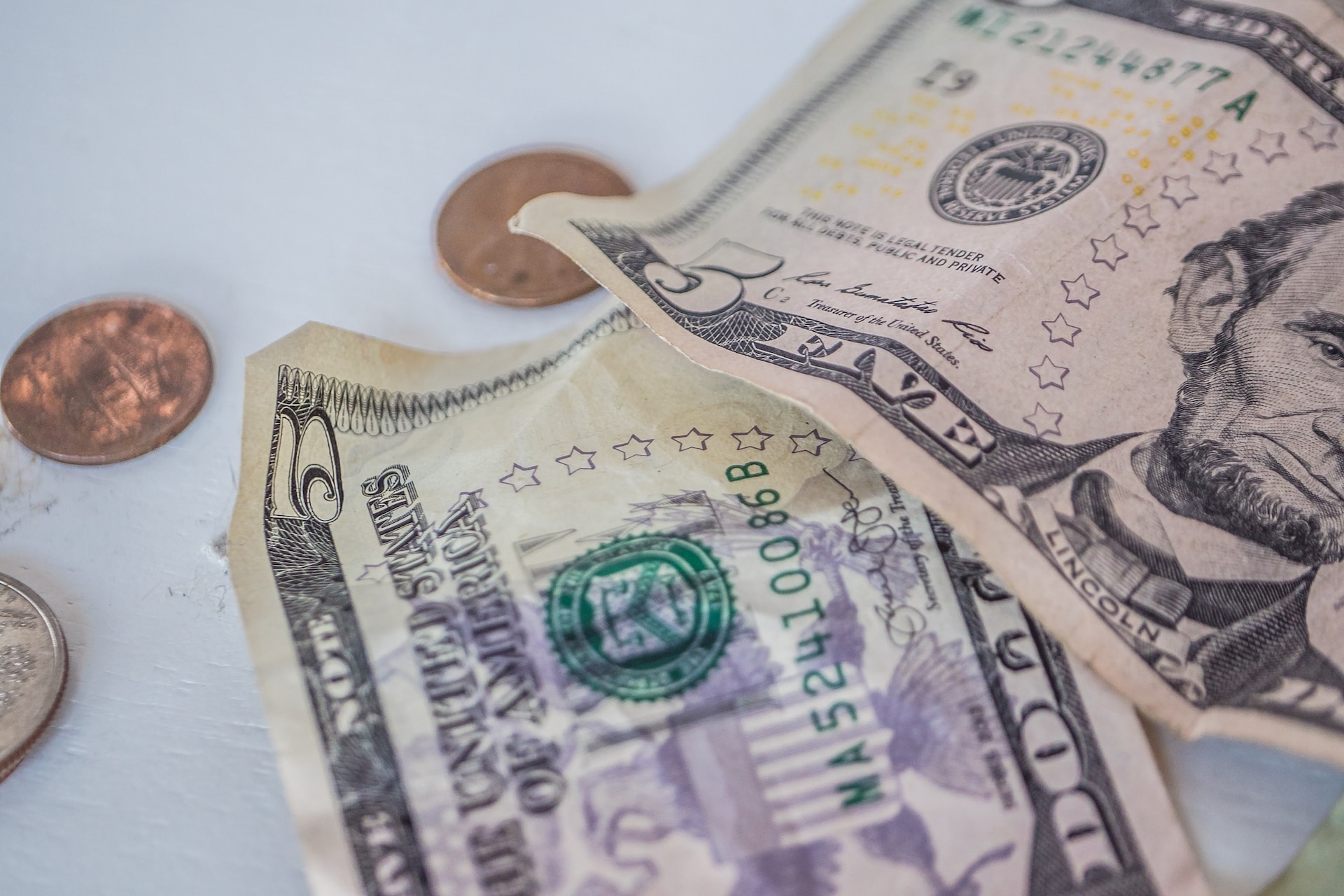According to the “Getting Paid in America” survey, approximately 93% of U.S. employees receive their paycheck through direct deposit. The electronic mode of payment offers a convenient way for you to receive your hard-earned money without having to visit your local bank branch to deposit a paper check.
With the convenience and the benefits of using direct deposit, it’s no surprise many consumers are moving away from paper checks. Keep reading to learn how direct deposit works, whether it’s better than cash, and other benefits of using it to receive your paycheck.
Direct Deposit and How It Works
Direct deposit is the electronic transfer of funds into a recipient’s checking or savings account. You don’t have to queue in bank hallways to access your cash. Instead, the money is automatically deposited into your checking account and is available immediately.
To receive direct deposit, you must provide the payer with your account number and the bank’s routing number. Alternatively, you can provide a void check with similar information printed on it. Once the depositor has all the information they need, they’ll enter it into their banking system. Then, the funds will be electronically transferred directly from their account to yours.
The electronic fund transfer is made possible by the Automated Clearing House (ACH), a network of banks and financial institutions. Since funds clear immediately through ACH, they’re available instantly.
Is Direct Deposit Better than Cash?
Direct deposit and cash both have their advantages and disadvantages, and which is better depends on your personal circumstances and preferences.
Direct deposit is a convenient and secure way to receive payment. It eliminates the need to physically go to a bank or check-cashing location to deposit a check, which can save time and reduce the risk of loss or theft. Besides, you can access the funds immediately, depending on your bank’s processing times.
Cash, on the other hand, can be a more flexible and anonymous way to make purchases. You can use cash at any establishment that accepts it, and it can help prevent identity theft and fraud. Additionally, cash can be handy in situations where electronic payment methods may not be available or reliable, such as during power outages or natural disasters.
Generally, a direct deposit may be better than cash, considering the convenience, security, and accessibility of the funds.
Top 12 Benefits of Direct Deposit
Over 93% of U.S. workers prefer to receive their paycheck via direct deposit for a good reason. In fact, many employers are shifting to direct deposit to pay their employees, and it’s easy to see why.
Here’s how direct deposit can help make managing your finances easier.
1. Get Paid Faster, Anywhere
One of the most obvious benefits of direct deposit is that you have immediate access to your hard-earned cash. Even if your typical payday falls on a weekend, you’ll receive your paycheck on the last working day before the weekend. This is especially helpful as you can pay bills on time and cover other expenses.
In contrast, receiving a paper check can result in delays due to mail delivery, processing times, and clearance periods. You may also need to physically go to a bank or check-cashing location to deposit the check, which can take additional time.
Direct deposit also allows you to receive your paycheck no matter where you are. So whether on vacation or in another country, you can get your money on payday anywhere you have a bank account. As long as you have a bank account that accepts direct deposits, you can receive payments from anywhere in the world.
2. Convenient and Less Hassle
Unlike paper checks, where you have to visit your local bank branch to deposit and wait a couple of days before you access the funds, direct deposits eliminate the hassle. All you need to do is set up and forget it.
Once activated, you only need to wait to receive your paycheck on payday. You don’t have to spend extra time depositing the check and waiting for it to clear. It also eliminates the risk of lost or stolen checks.
3. It Saves You Time and Resources
If your employer pays you by check, you either need to pick it up yourself or wait for it in the mail. In addition, depositing the check requires you to visit your local bank branch and wait a few days to clear. Using direct deposit to receive your payments saves time and money by cutting all these steps.
With direct deposit, you don’t have to physically deposit a check at a local bank branch or ATM. This means you don’t have to spend time going to the bank, waiting in line, or dealing with any potential issues that may arise during the deposit process. Plus, you don’t have to wait for the check to clear.
4. Direct Deposit is Free
Setting up and receiving payments via direct deposit is free, especially if you do it through your workplace. You won’t incur any fees or other charges that may eat up a portion of your paycheck.
However, some banks may charge fees for certain types of accounts if specific requirements aren’t met, such as maintaining a minimum account balance or making a certain number of transactions each month. So, it’s important to read the fine print of your bank’s terms and conditions.
5. Direct Deposit Won’t Get Lost or Torn Up
One downside of paper checks is that they can easily get lost or torn up. While you can replace lost or damaged paper checks at a small fee, it will take longer to receive your funds.
Since direct deposits happen electronically, the chances of losing your money are minimal, especially if you provide the correct bank account information. This is because funds are electronically transferred and deposited into your bank account.
6. Safer and More Secure
Direct deposit is a secure way to transfer funds, as there’s no physical check with identifying information, such as your name, address, or employer, that fraudsters can use for fraudulent purposes. This reduces the risk of fraud and ensures that funds are delivered safely and securely.
Although direct deposits are electronically encrypted, encryption encodes sensitive data, so hackers trying to intercept the information won’t easily understand. This keeps your personal and banking information secure.
7. Better Manage Your Budget
Setting up direct deposit means you have more control over your money, which can help improve your budgeting skills.
For instance, you can designate multiple accounts for your pay to go into and specify the percentage of your paycheck for each. If you’re saving up for a vacation or a high-ticket purchase, you can allocate funds to different accounts until you reach your savings goal.
In addition, you can automate bill payments for dates you know you’ll have received your paycheck. Paying bills on time can positively impact your credit score.
8. Automatically Deposit to Savings
We all have savings goals. So whether you want to set aside funds for a down payment, your wedding dream, or a family vacation, you can do so when setting up direct deposit.
With direct deposit, you can decide how you want to allocate your hard-earned cash. For example, you can automatically deposit a percentage of your paycheck to your savings account or emergency fund.
This is a great way to grow your savings account and achieve your short-term and long-term financial goals.
9. Flexible
Direct deposits aren’t just for paychecks. You can use it to receive cash advances or expense reimbursements from your employer. You can also use direct deposit to receive income tax refunds, federal benefit payments or build your retirement fund.
10. Switch Banks With Ease
The best thing about direct deposit is that you can switch banks. Switching banks is a relatively simple process. All you need to do is fill out a new direct deposit form with your employer or Social Security Administration if you receive your social benefits via direct deposit.
However, don’t forget to rework automatic bill pay accounts. This way, you can streamline your bill payments with your new financial institution.
11. Avoid Monthly Maintenance Fees
Several traditional banks charge monthly fees on checking accounts. The only way you can avoid these fees is by setting up a certain number of direct deposits each month. For example, a bank or credit union may require you to receive a direct deposit worth $600 every month to waive fees.
If you bank at a financial institution with such fees, you can easily meet the monthly requirements if you use direct deposit to receive your payment. This means monthly service fees won’t eat a portion of your paycheck.
Apart from your bank waiving monthly maintenance fees and minimum balance requirements, you may even get better interest rates.
12. Easy to Set Up
Setting up direct deposit is relatively easy 一 you can do it on your own or through your workplace. Here’s how to set up direct deposit:
- Request a direct deposit form from your employer: You need this form to submit the appropriate bank information. Your bank may also be able to provide the form.
- Fill out the direct deposit form: Once you get the form, fill it out with your personal details, such as your name, Social Security number, and signature for direct deposit authorization. You’ll also need to provide your bank or credit union’s information, including your account number and routing number.
- Choose a deposit amount: The direct deposit amount usually equals your paycheck. However, you can allocate a portion of your paycheck to your savings account or another checking account.
- Attach a voided check or deposit slip: In some cases, you may need to attach a voided check or deposit slip to ensure that your employer is connecting the correct bank account.
- Submit the form: Once you’re done, send the form back to your employer. If you work remotely, use a secure file transfer service to submit the form instead of mailing it.
Are There Any Downsides to Direct Deposit?
Like any other mode of payment, a direct deposit has drawbacks. One of the major disadvantages of using direct deposit is when you want to change financial institutions. You’ll need to contact your employer (if you receive your paycheck via direct deposit) or Social Security Administration (if Social Security benefits are made via direct deposit) and complete the necessary paperwork.
For this reason, it’s always a good idea to find a bank you’re content with before setting up direct deposit.
Still, direct deposit is one of the most convenient and secure ways to receive payments. Whether you’re employed or running a business, you save your precious time and resources with direct deposit.







